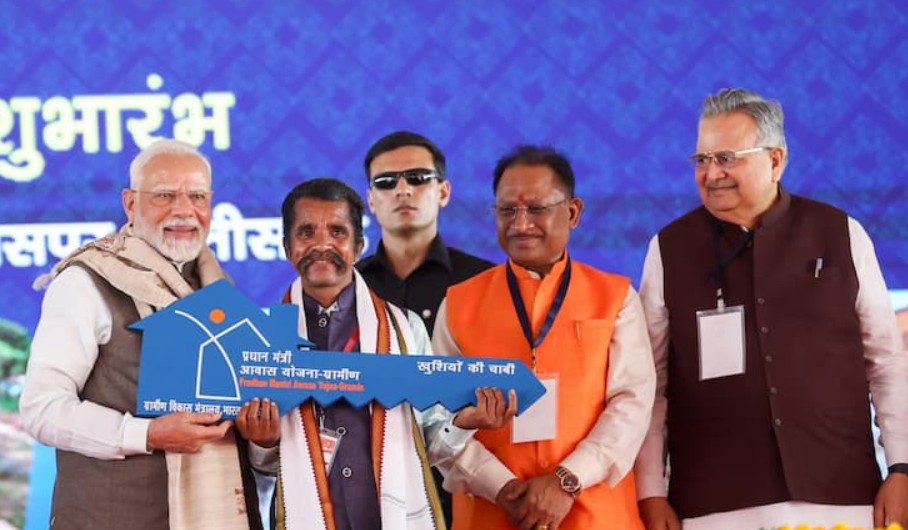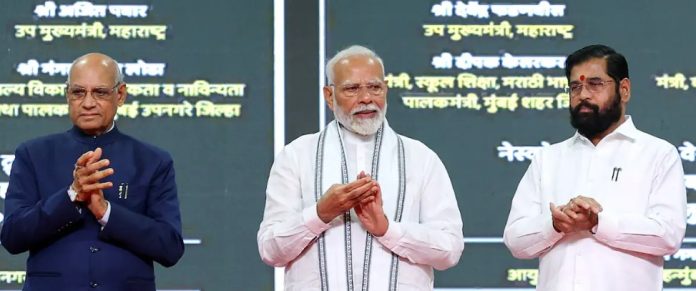In a significant push toward infrastructural development and public welfare, a senior minister of the Punjab government laid the foundation stones for multiple projects collectively worth Rs 47.30 crore. These projects, set to be executed in different parts of the region, reflect the state government’s ongoing commitment to the all-round development of both urban and rural areas. The announcement was made during a well-attended public function, where local residents, officials, and stakeholders expressed optimism about the benefits the projects would bring to their daily lives.
The minister, while addressing the gathering, emphasized that the Punjab government remains steadfast in its mission to build robust public infrastructure that not only meets the needs of the present population but also lays the foundation for future generations. The projects span multiple sectors such as education, health, sanitation, road connectivity, and clean drinking water, thereby ensuring that no community is left behind in the development journey.
The event was held in a festive atmosphere, with people from nearby villages and towns turning up in large numbers. Local administrative officials presented detailed blueprints and timelines of the projects, outlining how each would be implemented in a phased and transparent manner. The minister, known for his hands-on approach, urged the concerned departments and contractors to prioritize quality and avoid any delays in project completion.
Among the projects launched, a substantial portion of the funds has been earmarked for road repairs and widening. These include the strengthening of link roads connecting major villages with the main highways, which are expected to facilitate smoother transportation and easier access to marketplaces, schools, and hospitals. The minister mentioned that road connectivity is essential for social integration and economic mobility, especially for farming communities that depend heavily on timely transportation of crops and produce.
Another key focus area is healthcare infrastructure. Funds have been allocated to upgrade the local primary health centres and dispensaries, ensuring that they are equipped with modern facilities, diagnostic tools, and trained staff. The aim is to reduce dependency on far-off tertiary hospitals by strengthening the first level of medical care. In the post-COVID era, the importance of well-equipped health infrastructure in even the remotest parts of the state cannot be overstated.

The minister also laid emphasis on educational development. Foundation stones were laid for the construction of new school buildings and the expansion of existing government schools. These developments include the addition of modern classrooms, science and computer labs, and sanitation blocks for students and staff. Addressing the youth in the audience, the minister highlighted that education is the cornerstone of social progress and the key to unlocking Punjab’s full potential.
A noteworthy component of the Rs 47.30 crore investment includes projects aimed at improving water supply and sanitation. This includes the installation of new water pipelines, construction of overhead water tanks, and the upgrading of sewerage systems. The minister shared that clean water is a basic right of every citizen, and these projects are expected to improve health outcomes, particularly in rural and semi-urban belts where water-related illnesses remain a concern.
Waste management and sanitation, often neglected in development plans, are also getting due attention in this initiative. Plans for setting up solid waste disposal units and community toilets were shared, with a commitment to promote cleanliness and public hygiene in line with the Swachh Bharat Abhiyan. These measures are expected to significantly improve living conditions and reduce the environmental footprint of fast-growing settlements.
During the event, the minister interacted with several members of the public and listened to their grievances. In a heartening gesture, he assured the locals that a feedback mechanism would be set up to monitor the progress of each project and that complaints or delays would be addressed promptly. He said that accountability and transparency would be the guiding principles of this developmental phase.
Furthermore, the minister credited the state leadership for providing consistent support and budgetary backing for these projects. He said the administration has been working day and night to ensure timely fund allocation and regulatory clearances so that there are no procedural bottlenecks in starting the work on the ground. He also thanked engineers, planners, and workers for their contribution to making these initiatives a reality.
Highlighting the government’s inclusive development agenda, the minister reaffirmed the administration’s intent to serve people from all walks of life—be it farmers, students, healthcare workers, or the elderly. He acknowledged that while challenges remain, a collective spirit of cooperation between the government and citizens can overcome any hurdle.
Residents welcomed the announcements with applause and optimism. Many of them said that these infrastructure improvements have been long overdue and that they were hopeful that the projects would now be completed swiftly and with the desired quality. Community elders, local panchayat leaders, and youth representatives alike expressed their support for the government’s initiatives, promising to help in monitoring progress and maintaining the facilities once completed.
In a concluding note, the minister reiterated the government’s pledge to transform Punjab into a model state through efficient use of public funds, people-centric policies, and timely execution of development projects. He said that such efforts are not just about bricks and mortar but about building trust, enabling livelihoods, and improving the standard of living across the board.
As the event concluded, officials began the process of mobilizing resources and machinery to ensure work on the newly announced projects would commence without delay. The coming weeks will see a flurry of activity across the targeted areas, with a focus on sustainable development and long-term community welfare.
Through initiatives like these, the Punjab government continues to demonstrate that it is not only responsive to the immediate needs of its citizens but is also laying the groundwork for a prosperous and well-connected future.


